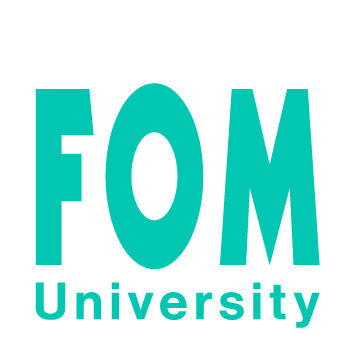Unfortunately no results for your search
Oh no, somethings seems to have the broke the search results. Please try rephrasing your search term!
Industry 4.0 & Management
Master of Science (M.Sc.)
Degree: Master of Science (M.Sc.)
Master’s Study Programme Industry 4.0 & Management
The economy is becoming increasingly digital and networked. The intelligent linking of IT and business management systems enables a more flexible, individual, and efficient production as well as an optimisation of the entire value chain. The goal of a more flexible production through networking goes hand in hand with ever shorter product cycles, improved business models and a digitalised value-added network. The core elements of an Industry 4.0 are automation, standardisation, digitisation, and networking as well as the merging of hardware and software.
In order to implement “Industry 4.0”, companies are dependent on specialized professionals who have both business management expertise and comprehensive skills in dealing with the key technologies of Industry 4.0.
With “Industry 4.0 & Management”, FOM has developed a future-oriented Master’s programme whose contents are specifically geared to these requirements. You will acquire both business expertise and management skills as well as sound specialist knowledge of the digital transformation of classic, industrial processes. In this way, you will prepare yourself for a wide range of possible applications in the context of Industry 4.0 and qualify for demanding positions and management tasks in nationally and internationally operating companies across all industries.
The Master’s degree in Industry 4.0 & Management will be completed with the academic degree Master of Science (M.Sc.). The degree will be awarded by FOM Hochschule für Oekonomie & Management.
Duration
Accreditation (Master)

Studying full-time in India and Germany
Master’s degree on campus
In cooperation with FOM Hochschule, students from India now also have the opportunity to participate in the Big Data & Business Analytics Master’s programme at the Indira Global Study Centre in Pune, India.
The first two semesters of the study programme will be held at the IGSC in India, and the third and fourth semester will take place at the FOM Hochschule at the German University Center in Essen, Germany.
- Prerequisites for admission
- Fees & Registration
- Contact in India
What you need for admission
Bachelor's degree with at least 60 credit points in (Economic-) Computer Science modules or (Economic-) Engineering
or
Bachelor's degree with least 60 credit points in subject related modules (for example, Mathematics, Statistics)
or
successfully completed oral entrance examination
English language B2
Semester Overview
Study programme
Artificial Intelligence
Development of the AI and essential concepts
Agents
Knowledge-based systems
Logics
Machine learning and data mining
Smart Technologies within the Value Chain
Industry 4.0 technologies within individual business processes of a manufacturing company (production IT, big data analytics, internet of things, artificial intelligence)
Industry 4.0 technologies within individual business process sections
Data security
Impacts and effects of Industry 4.0
Technology & Sustainability
The role of different actors in sustainable development
Sustainability assessment of products, services and processes
Technology transfer as an instrument of sustainable development
Sustainability relevant fields of technology
Design Thinking & Business Model Innovation
Lean start-up
Methods of design thinking to formulate comprehensive and innovative problem and solution spaces
Basic principles of design thinking business systems and portals
Deutsch
Fundamentals in listening, reading, writing and speaking
Basic grammatical skills
Application in situations of everyday life
Organisational Transformation
requirements of digitisation for the enterprise organisation
success factors of organisational
transformation processes
concepts of organisational change: organisational transformation
Digital Factory & Cyber-Physical Systems
basics of cyber-physical production systems
fundamentals and application of robotics
fundamentals and classification of additive manufacuring
sustanability and ethical aspects in the context of smart production
Research Methods
Qualitative and quantitative research methods
Quantitative data analysis (applications with R, statistical test procedures, multivariate procedures)
Enterprise Architecture Management
summary EAM
organisational anchoring of EAM
business and IT-strategy
IT systems and IT architecture
EAM tools
Applied Project I
Applied Project II
Master Thesis
Subject to change.



